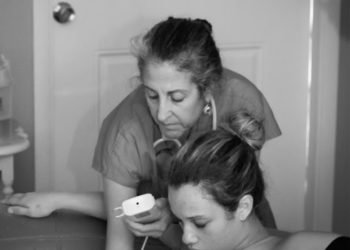Menopause is a natural life stage that every woman will experience. It’s not a disease or a condition that needs treatment. However, the symptoms associated with menopause can often be uncomfortable and disruptive. Thankfully, numerous natural remedies for menopause can help ease these symptoms, enabling women to navigate this phase of life with grace and dignity.
1. Understanding Menopause
Menopause, the cessation of menstrual periods for twelve consecutive months, is a normal part of aging for women. Typically, menopause begins in the late 40s or early 50s and lasts several years.
During this transition, levels of estrogen and progesterone, two vital female hormones, fluctuate and eventually decline. This hormonal shift can trigger a range of symptoms, with the most common ones being hot flashes, night sweats, mood changes, sleep disturbances, and vaginal dryness.
2. Natural Remedies for Menopause: An Overview
From dietary changes to herbal supplements, numerous natural remedies for menopause can help manage its symptoms. These remedies balance hormones, improve overall health, and relieve specific menopausal symptoms.
However, it’s important to note that not all remedies work for everyone, and what works best for you may depend on your specific symptoms and overall health condition. Before starting any new regimen, consult a healthcare provider to ensure its safety and suitability.
3. Dietary Changes for Menopause
Diet plays a crucial role in managing menopause symptoms. Certain foods can help balance hormones, reduce hot flashes, and enhance overall health.
3.1. Foods to Include
- Phytoestrogen-rich foods: Phytoestrogens are plant-based compounds that mimic the effects of estrogen in the body. Foods high in phytoestrogens include soybeans, tofu, flaxseeds, and sesame seeds.
- Omega-3 fatty acids: These essential fats promote heart health, reduce inflammation, and may help manage menopause symptoms. Foods rich in omega-3s include oily fish (salmon, mackerel, and sardines), flaxseeds, and chia seeds.
- Calcium and Vitamin D: These nutrients are essential for bone health, which can be compromised during menopause due to declining estrogen levels. Dairy products, green leafy vegetables, tofu, and beans are good sources of calcium. Vitamin D can be obtained from sunlight, oily fish, eggs, and fortified foods.
3.2. Foods to Avoid
Certain foods and drinks can trigger menopause symptoms or make them worse. Hence, it’s recommended to limit or avoid the consumption of alcohol, caffeine, spicy foods, processed foods, and refined carbohydrates.
4. Staying Cool: A Simple Strategy
Staying cool can be a practical, easy-to-follow natural remedy for hot flashes and night sweats during menopause. Dress in layers, use breathable fabrics, and keep a portable fan handy. Lowering the temperature in your bedroom and drinking cold water before bed can also help.
5. Herbal Supplements for Menopause
Herbal supplements can provide symptomatic relief during menopause. However, their effectiveness varies, and some may have potential side effects. Always consult a healthcare provider before starting any herbal supplement.
5.1. Black Cohosh
Black cohosh, derived from a species of buttercup, may help with mild hot flashes and night sweats. However, it’s important to use it under medical supervision as rare cases of liver damage have been reported.
5.2. Red Clover
Red clover, a source of isoflavones, can reduce the frequency of hot flashes. The quality and concentration of active ingredients in red clover supplements can vary, so choosing a product from a reputable source is advisable.
5.3. Other Herbal Supplements
Other herbal supplements like ginseng, dong quai, and evening primrose oil have been used to manage menopause symptoms.
6. Mind-Body Techniques for Menopause
Mind-body techniques like mindfulness, meditation, and yoga can help manage stress, improve sleep quality, and reduce the frequency and intensity of hot flashes.
7. Acupuncture for Menopause
Acupuncture, a traditional Chinese medicine technique, involves stimulating specific points on the body with thin needles. Some studies suggest that acupuncture may help reduce menopausal symptoms, including hot flashes.
8. Regular Exercise: A Natural Menopause Remedy
Regular exercise can help manage menopause symptoms. It improves energy, metabolism, bone health, and sleep quality. It also reduces stress and can help maintain a healthy weight.
9. Staying Hydrated
Drinking plenty of water can help manage weight, reduce bloating, and alleviate symptoms of dryness during menopause.
10. Bioidentical Hormones: A Controversial Approach
Bioidentical hormones derived from plant sources are structurally identical to human hormones. Some people claim these hormones are a safer alternative to hormone replacement therapy (HRT). However, bioidentical hormones are not regulated like HRT, and their safety and effectiveness remain uncertain.
11. Cautions and Considerations
While natural remedies for menopause can be beneficial, it’s important to remember that “natural” does not always mean “safe.” Many herbal and dietary supplements can interact with prescription medications or cause adverse effects. Always consult a healthcare provider before starting any new supplement.
12. Embracing Menopause: A Natural Transition
Menopause is not an illness but a natural transition in a woman’s life. While it can bring uncomfortable symptoms, it also marks the beginning of a new life stage. Through healthy lifestyle changes and the judicious use of natural remedies for menopause, women can navigate this transition with grace, dignity, and vitality.


















